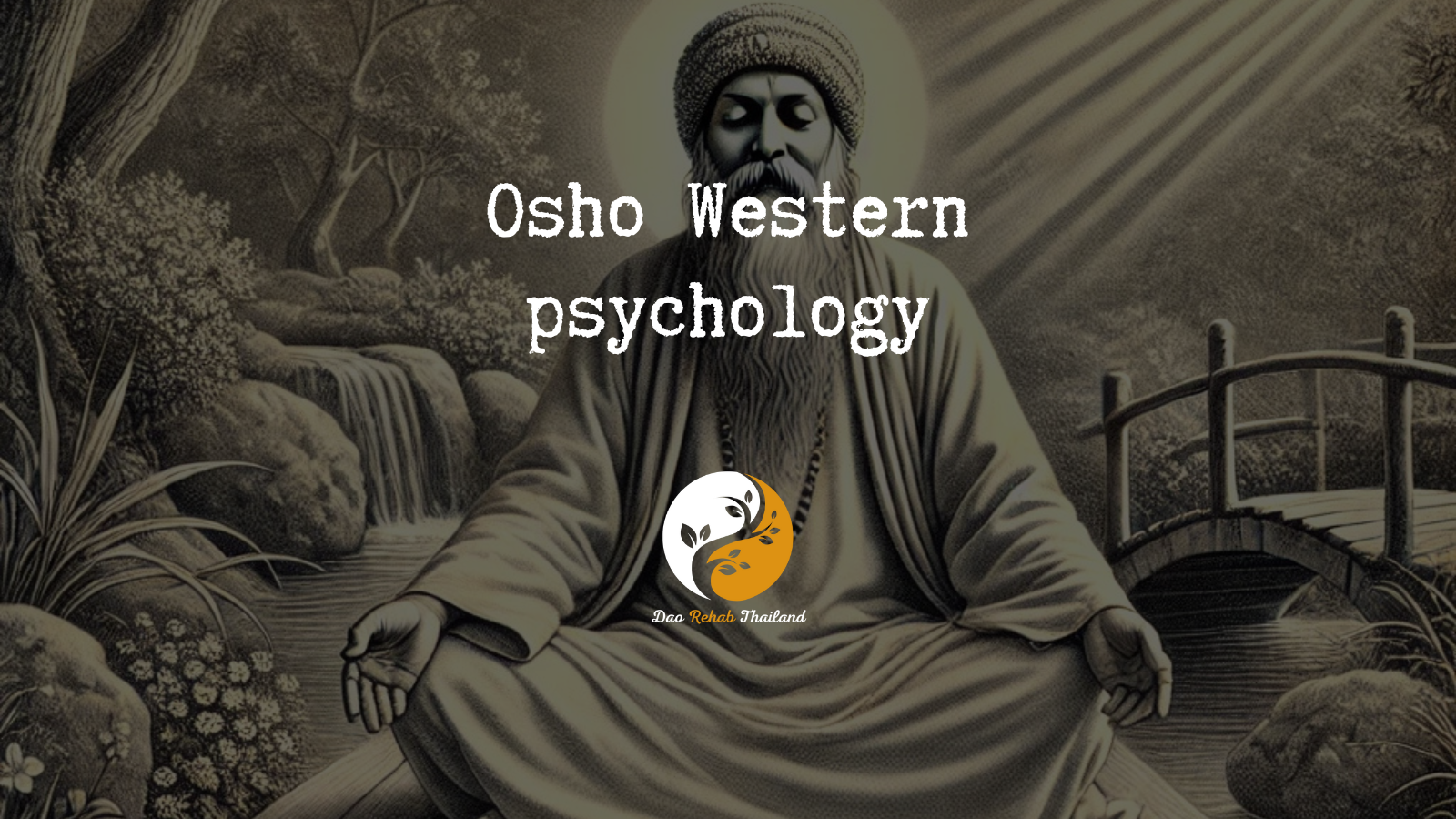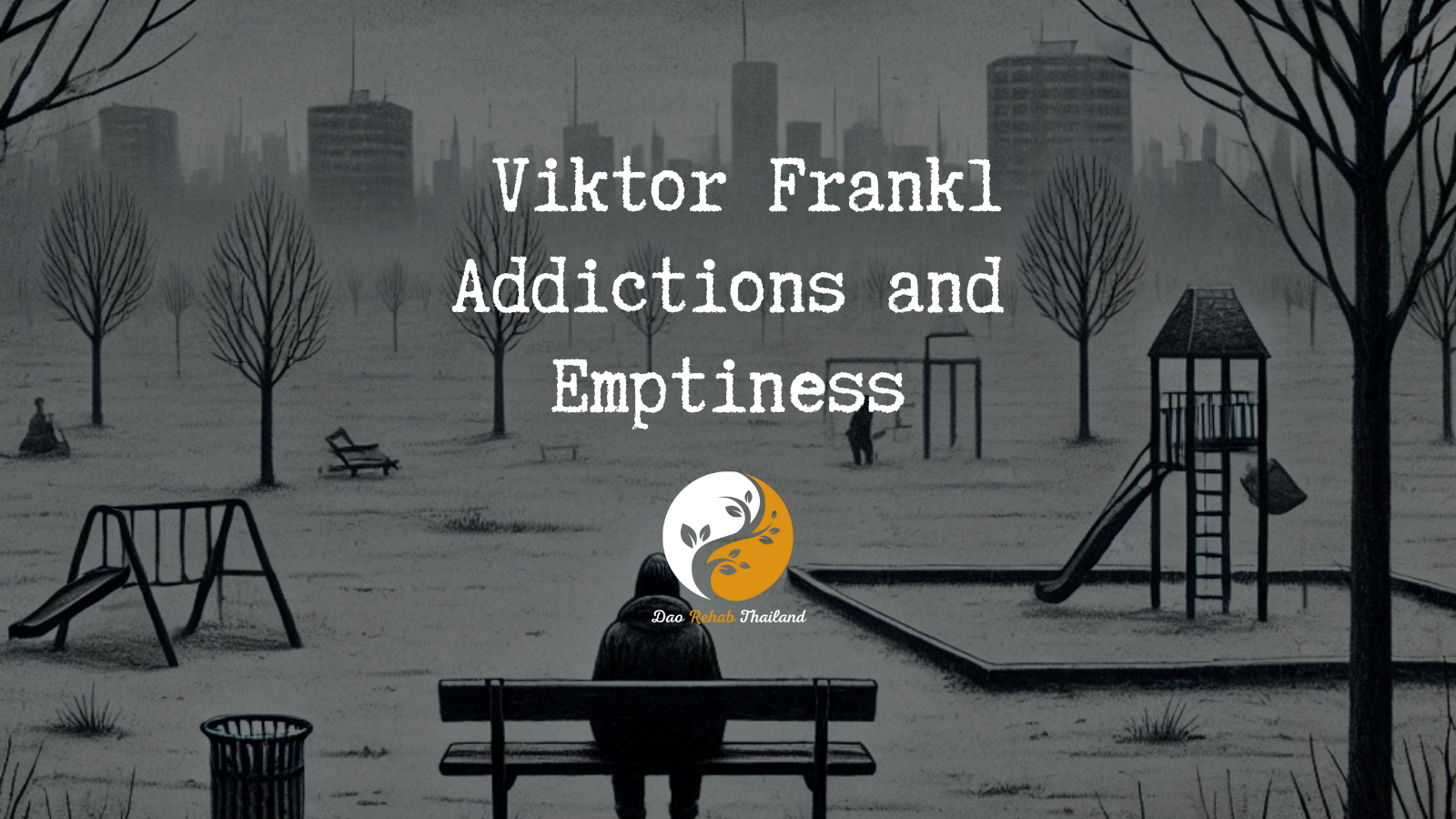
Osho Western psychology-Dao rehab in Thailand
Osho Western psychology
“Turning the impossible into possible”

"Detox from Drugs at a Luxury Holistic Center in Thailand and Israel"

Osho Western psychology does not bring true awareness
Western psychology, despite its development and widespread recognition, is limited in its ability to help people achieve a deep understanding of themselves. Even the prominent founders of the field, such as Sigmund Freud, Carl Jung, Adler, Klein and others failed to reach true self-knowledge. Therefore, they are unable to guide others in this journey.
"Holistic Center for Trauma, Addiction, and Mental Imbalance Treatment in Thailand"
“Come to the beginning of your journey to freedom from addiction to alcohol, drugs, and pills, and rediscover your life within the serene embrace of DaoTherapy Rehab in Thailand—where holistic healing meets empowering recovery.”
DaoTherapy Holistic Rehab
Key Elements of Drugs Detox:
Medical Supervision: Drugs detox must be conducted under medical supervision, as the body may experience withdrawal symptoms. These can include nausea, anxiety, muscle aches, and insomnia. A medical team will monitor and manage these symptoms to ensure the patient’s safety and comfort.
Holistic Therapies:
Holistic Therapies: Many detox programs incorporate holistic therapies such as mindfulness, yoga, and meditation to help individuals cope with stress and anxiety during the detox process. These therapies support the mind-body connection and contribute to overall recovery.
Tapering Process
Tapering Process: Drugs detox often involves a gradual tapering of the drug to reduce withdrawal severity. Doctors will slowly decrease the dosage over time to allow the body to adjust to lower levels of the substance.
Psychological Support:
Psychological Support: Like any addiction recovery process, detox from Drugs includes psychological support. This can involve counseling, therapy, or support groups to address the mental and emotional aspects of addiction.
Post-Detox Treatment:
Post-Detox Treatment: After completing detox, continuing treatment is crucial to prevent relapse. This often includes participation in ongoing therapy, group support, and the development of new coping strategies to maintain sobriety.
Carl Jung, who visited India but avoided meeting Maharishi Ramana
Western psychology, despite its development and widespread recognition, is limited in its ability to help people achieve a deep understanding of themselves. Even the prominent founders of the field, such as Sigmund Freud, Carl Jung, Adler, failed to reach true self-awareness. Therefore, they are unable to guide others in this journey.
A clear example of this is the case of Carl Jung, who visited India but avoided meeting Maharishi Ramana, a respected spiritual teacher who is considered to have known himself deeply. Jung admitted in his diary that he was afraid to meet the eyes of a person who knew himself, because he himself did not know himself. Instead, he spent his time visiting tourist sites, which is irrelevant for a psychologist.
After his return from India, Jung began to write against Indian mysticism, he argued that it was dangerous to Western man due to cultural and psychological differences. However, the basic psychology of human beings cannot be fundamentally different, and Jung apparently projected his personal fears onto all of history.
The limitations of the psychologists in achieving self-recognition are also reflected in the high rates of suicides, mental illnesses, addictions and deviant behaviors among the professionals. If psychologists are unable to help themselves, how can they help others to know themselves?
In order to advance in the journey of self-awareness, one must be open to learning from different spiritual traditions, while recognizing that the basic human psychology is universal. We must seek authentic guidance that will help us connect to our inner wisdom, beyond purely intellectual analyses.
The key to self-knowledge lies in the willingness to look inward honestly, to confront the truth about ourselves and to adopt a position of constant self-inquiry. By applying these insights and experimenting with different methods, we can deepen our understanding of ourselves and live a more conscious and fulfilling life.
In conclusion, Western psychology, despite its importance, is limited in its ability to promote self-awareness. To move forward in this journey, we must broaden our perspective, seek authentic spiritual guidance, and adopt an attitude of honest self-enquiry. Only in this way can we discover the deep truth about who we are and live a life full of meaning and purpose.

contact us
Contact us with your questions
We would love to speak with you! Feel free to reach out with any questions.

get in touch
Schedule a free consultation
Schedule a free consultation with our team and let’s make things happen!
The limitations of Western psychology in achieving self-recognition
introduction:
Western psychology has developed significantly over the past century, and has become a recognized and respected field of research. However, despite the considerable progress in understanding the human psyche, there are fundamental limitations in Western psychology’s ability to help people achieve deep and true self-knowledge. These limitations stem, among other things, from the fact that even the prominent founders of the field failed to reach a complete understanding of themselves.
The case of Carl Jung:
A striking example of these limitations is the case of Carl Jung, one of the fathers of modern psychology. During his visit to India, Jung was invited to meet Maharishi Ramana, a revered spiritual teacher known for his deep self-awareness. However, Jung chose to avoid the meeting, and instead spent his time visiting tourist sites. In his personal diary, Jung admitted that he was afraid to face the gaze of a person who knew himself well, since he himself had not reached such self-knowledge. The fact that a psychologist of such stature as Jung shied away from a confrontation with true self-awareness indicates the limitations of Western psychology in this area.
Jung and Indian mysticism:
After his return from India, Jung began to write against Indian mysticism, arguing that it was dangerous to Western man due to cultural and psychological differences. However, this claim raises doubts, since the basic psychology of humans cannot be fundamentally different between cultures. Jung seems to have projected his personal anxieties and fears onto all of history, instead of facing the real challenge of self-realization.
Mental problems among psychologists:
The limitations of psychologists in achieving self-awareness are also reflected in the alarming rates of suicides, mental illnesses and deviant behaviors among professionals. If those who claim to help others in dealing with mental difficulties fail to deal with their own problems, sharp questions arise regarding the effectiveness of Western psychology in promoting mental health and personal growth.
Openness to spiritual wisdom:
In order to advance in the journey of self-awareness, one must adopt a more open attitude towards spiritual traditions and insights from diverse sources. Despite the cultural differences, the basic human psychology crosses borders, and therefore much can be learned from the wisdom of the world. It is important to look for authentic guidance that will help us connect to our inner sources, beyond intellectual analyzes and abstract theories.
Honest self-inquiry:
The key to real progress in self-knowledge lies in the ability to look within honestly and courageously. We must be ready to face the truth about ourselves, even if it is sometimes difficult or challenging. Through a continuous process of self-exploration, we can reveal the deeper layers of our being and reach a deeper understanding of our true nature.
Application of the insights and personal growth:
The understandings and insights gained during the journey to self-knowledge are not meant to remain at the theoretical level only. We must apply these lessons in our daily lives, and make them an integral part of our way of life. By combining practical experiences, practicing different techniques and persevering in self-inquiry, we can internalize the wisdom we have acquired and bring about a fundamental change in the way we experience ourselves and the world around us.
Summary:
Western psychology, despite its many achievements, has not yet been able to provide the full tools for achieving deep self-awareness. The limitations of the Western approach are reflected both in the inability of the founders of the field to reach a full understanding of themselves, and in the high rates of mental problems among the professionals. To advance our inner journey, we must broaden our perspective, draw inspiration from diverse spiritual traditions, and adopt a stance of honest and constant self-inquiry. Only in this way can we discover the true potential that lies within us, and live a life full of meaning, self-fulfillment and inner perfection. The journey to self-awareness is a complex and long-term challenge, but it is also our greatest opportunity to grow, develop and realize our destiny as human beings.
Key insights
1. The psychologists, even the founders, knew nothing about themselves.
2. Carl Jung was afraid to meet the eyes of a person who knows himself, because he himself did not know himself.
3. The basic psychology cannot be different between human beings.
4. The suicide rate for psychologists is twice as high as for average people.
5. Psychologists find excuses to commit deviant acts through psychology.
6. Psychologists cannot help anyone to know themselves.
7. Jung wrote against Indian mysticism out of guilt for not going to meet Maharishi Ramana.
8. Jung argued that the Eastern mystical tradition is dangerous for Western man.
9. Despite the small differences, the basic psychology cannot be different between human beings.
10. Psychologists cannot help themselves, as shown by their higher rates of suicide and insanity.
Practical advice
1. Do not rely on psychologists to know yourself, because they themselves do not know themselves.
2. Be open to learning from different spiritual traditions, even if they are unfamiliar to you.
3. Remember that the basic psychology of humans is universal, despite small cultural differences.
4. Be aware that psychologists may use their knowledge to justify problematic behaviors.
5. Don’t be afraid to face the truth about yourself, even if it’s uncomfortable.
6. Seek authentic spiritual guidance to know yourself, not just psychological theories.
Psychological Support:
Psychological Support: Like any addiction recovery process, detox from Subutex includes psychological support. This can involve counseling, therapy, or support groups to address the mental and emotional aspects of addiction.
Mantras for self-talk
1. I am obliged to know myself and not rely only on the opinions of others.
2. I am open to learning from spiritual insights from different traditions to deepen my self-understanding.
3. I am aware that my basic psychology is similar to that of all humans, and I respect cultural differences.
Thought provoking questions
1. Do you feel that Western psychology helped you to know yourself? Why or why not?
2. How do you think you can deepen your self-understanding beyond what normal psychology offers?
3. Are there any spiritual traditions or other methods that interest you as a tool for self-knowledge? If so, which ones?
4. What do you think about the idea that psychologists themselves do not know themselves enough to help others?
5. How do you intend to apply the insights from this lesson in your personal life and in your journey of self-awareness?
Psychological Support:
Psychological Support: Like any addiction recovery process, detox from Subutex includes psychological support. This can involve counseling, therapy, or support groups to address the mental and emotional aspects of addiction.








